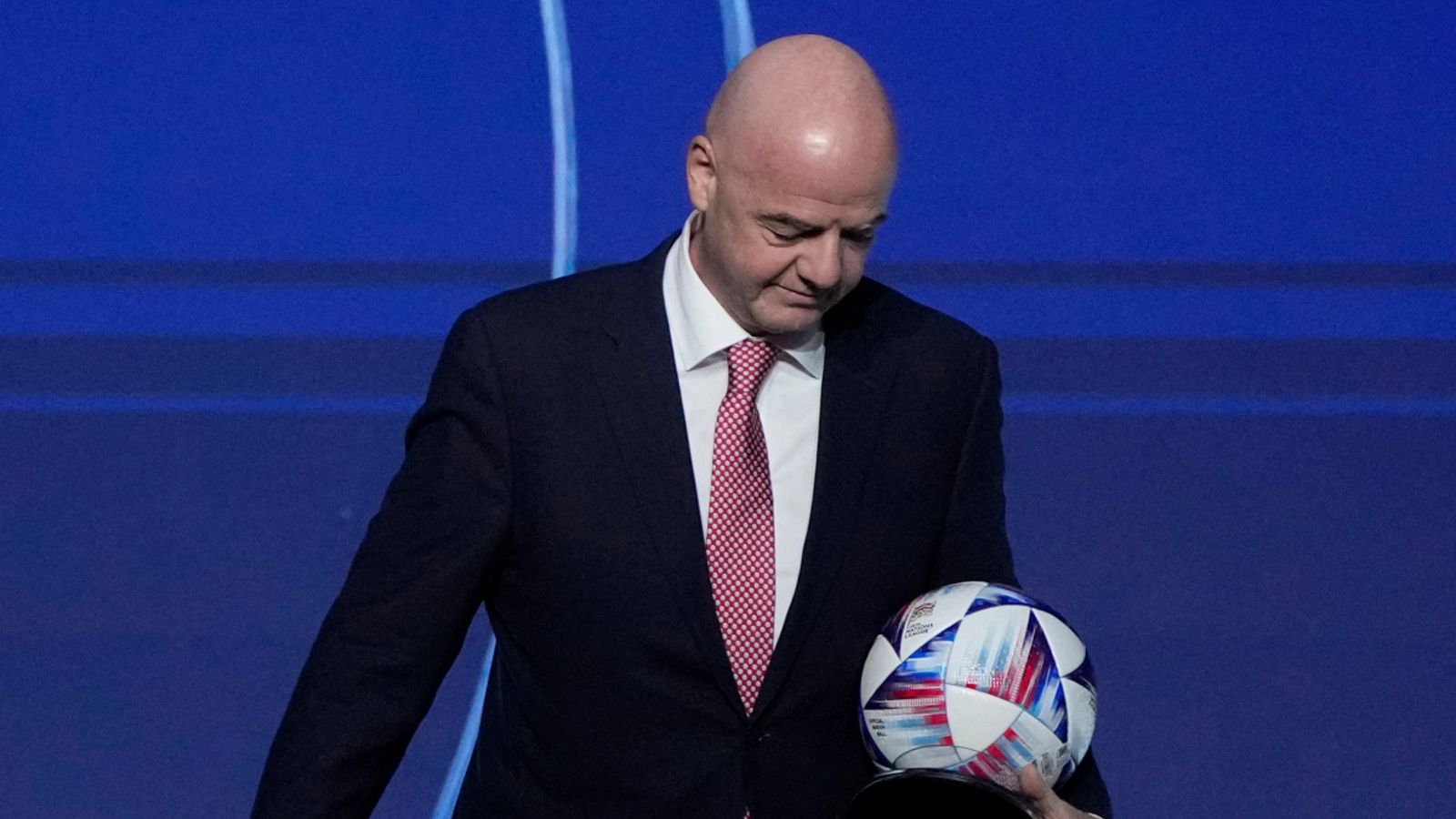FIFA president Gianni Infantino has left the Women’s World Cup after less than a week – skipping four matchdays so far, Sky News has uncovered.
The early departure from the tournament – missing the last four days of matches – stands in stark contrast to the men’s World Cup in Qatar where he made a virtue of attending some of all 64 matches.
Mr Infantino himself had called for the Women’s World Cup to be shown the same respect as the men’s tournament when criticising broadcasters for not offering enough for television rights.
Sky News has tracked the movements of a private jet known to have been used by Mr Infantino, showing that it left Tahiti on 17 July, was in New Zealand for around eight days, before returning to Tahiti three days ago, on 25 July.
FIFA would not say when Mr Infantino is due back at the tournament which ends on 20 August.
The distances involved in Australia and New Zealand made it impossible for him to attend every match at FIFA’s biggest-ever women’s showpiece.
But Mr Infantino has not been to any matches in Australia – or even visited the country since it was awarded the hosting rights with New Zealand in 2020.
FIFA internal report warned of Australia-New Zealand Women’s World Cup time zone issues – as Infantino threatens blackout
FIFA boss threatens Women’s World Cup blackout for five European countries including UK
FIFA set to pay clubs £300m for sending players to World Cup
He was largely based in Qatar for more than a year building up to the men’s World Cup, which FIFA said was “in order to deliver his presidential duties and be closer to the FIFA World Cup”.
More of a distance has been kept by him from the Women’s World Cup build-up and event itself.
He only attended matches on the first five days of the tournament in New Zealand – starting with the opening game on 20 July and most recently at Eden Park in Auckland on Monday to see Italy beat Argentina and meet the family who bought the 1.5 millionth ticket.
During the 2022 men’s World Cup, Mr Infantino called it a “privilege and pleasure to attend all the 32 matches that have been played so far”.
He has repeatedly said this would be the “best-attended” Women’s World Cup but his own attendance record has fallen short despite making a virtue out of football’s need to treat the men’s and women’s World Cup equally – calling the 2023 event a “celebration of equality”.
Please use Chrome browser for a more accessible video player
“It’s time to respect women,” he has repeatedly posted on Instagram in recent months, calling it a “slap in the face” broadcasters wouldn’t pay anything close to the fees for men’s World Cups.
“We just want that the (women’s) game is respected and that the right money is paid for that,” he said in May.
Mr Infantino’s Instagram account has continued to post official images from matches – obscuring the fact he left New Zealand on Tuesday.
Only after Sky News asked FIFA about Mr Infantino not being seen this week at the Women’s World Cup was a video posted showing him in Tahiti playing football with mostly men on an apparent visit to a member association while the flagship women’s football event continues without his presence.
Read more:
Players fight for the pay they deserve
Footballers give their World Cup predictions
Commentator criticised for ‘sexist’ remark at World Cup
He had written on Instagram that “this year is the year of women and the future belongs to women”.
He has seen only 12 of the 32 teams live so far at the first Women’s World Cup since the expansion from 24 finalists.
Mr Infantino has overseen a rise in the prize money and participation fund for the Women’s World Cup
For the first time there is guaranteed squad pay now – from $30,000 (£23,200) for players who exit in the group stage to $270,000 (£208,800) for each of the champions.
That is a significant boost for players. FIFA’s last published research showed the average global salary for female professional players is only $14,000 (£10,800) and many countries still lack professional women’s leagues.
FIFA provided no comment on Mr Infantino’s contrasting commitment to men’s and women’s football.











